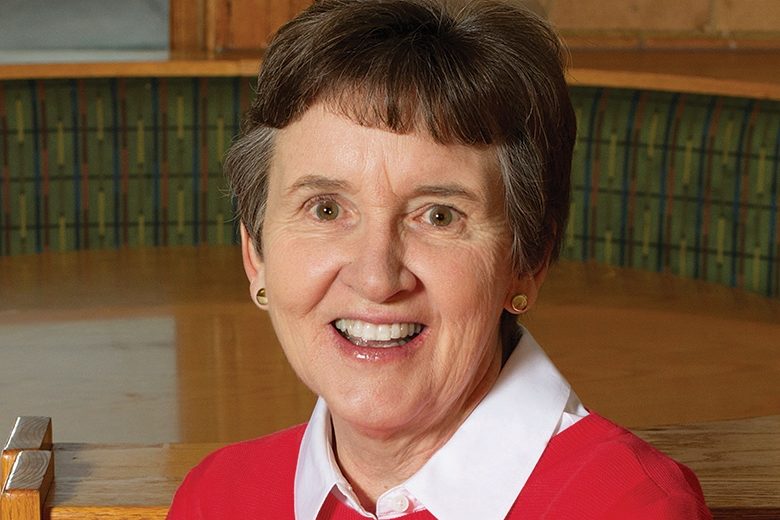
Finding sustainable solutions to address food injustice is a huge undertaking, but Joanne Burke, PhD, RD, LD, is approaching it head-on. In 2013, the clinical associate professor of nutrition at the University of New Hampshire was appointed the first Thomas W. Haas Professor in Sustainable Food Systems, allowing her to further the mission of the UNH Sustainability Institute's regional initiative, "Food Solutions New England."
Burke, who also leads the university’s dietetic internship program, says she's committed to finding sustainable solutions to hunger at the systems level. "If we are going to have an equitable, 'food-secure' future, we need to use a food systems lens to look at everything: farm viability, livable wages, food and nutrient needs, education, environmental stewardship, policy, economic constructs, racial justice and food justice."
What led to your career in nutrition and dietetics?
My mother shared her passion for cooking and social justice. My father worked for a national restaurant chain, and as part of his work in the '60s was advocating for wage and racial equity in the food service arena. In southern Miami, where I grew up, we experienced a great number of Cuban refugees who left their homes with little more than the clothing on their backs. Having food was not a given for my schoolmates, and the response by our parish nuns and priests, and the community at large, indeed, made a positive impression.
Tell us about your work and how it fulfills a need.
On a given day, nearly one in six Americans is at risk of not having enough nourishing food to eat. Having rates of 20 percent food insecurity in families with children is unethical and leaves a legacy of permanently impeding full social and intellectual development. This is experienced disproportionately by minorities, children and women. Nutrition makes such a critical difference in realizing our full human potential, ![]() in building capacity for full engagement in a civil society.
in building capacity for full engagement in a civil society.
The amazing part of my work, is that I have the opportunity to work with students, and to engage with a number of individuals and agencies at the state, regional and national level. In 2011, the UNH Sustainability Institute organized a Northeast regional food summit for the six New England states. In preparation for that event, and in collaboration with a graduate PhD candidate, our dietetic interns and our media department, were able to capture the stories of those who have lived with food insecurity in their own voices. We heard about their experiences, and learned how food programs and nutrition education interventions can make a positive difference. In 2013, FSNE made a commitment to explicitly address racial equity as central to its food system work. By 2014, we published a collaborative report entitled, "A New England Food Vision."
Five years after the first summit, our New England region is not asking if we should work together, but how do we work together as a network to identify and embrace strategies to transform the food system so that it is more accessible and sustainable for all. We continue to involve dietetic interns, be it at the local, state or regional level, and it is, indeed, rewarding to know we will be positioning our students to have the foundational knowledge, skills and will to engage and lead initiatives designed to elicit positive food system change.
What do you find most rewarding about your work?
We are living at a time in which have become far more aware that our collective actions will determine the very future of life on earth as we know it. We are many countries, but one world. I feel fortunate to be able to engage with students and to collaborate with community and national partners who share in the commitment to building a more just, racially equitable and sustainable food system for all
Looking ahead, how would you like to see your project develop or grow?
The need for food unites us all. Food system work is dynamic and evolving, and the need for skills and expertise will require that nutrition professionals are equipped not only with the knowledge of dietary needs, but understand the context of the ethical, social, political and economic dimensions of our food system. Our emerging professionals will need communication, collaboration, advocacy and life-long learning skills. The more we can learn to think and act in a systems way, the more we will be able to fully address the grand challenges inherent in building a food secure future for all.
